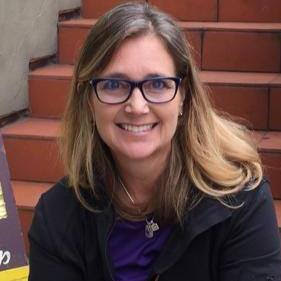
By Lee Shappell
You’ve scraped by but you’ve given your children a good, stable home. You’ve done your best to raise them with values that they’ll need to be successful in life. Unfortunately, your adult children had difficulty finding the way, and suddenly your grandchildren are being removed from their parents.
You’re on a fixed income now. You didn’t see this coming. Social-service agencies can place the kids in a group or foster home, but they’re your grandkids. It’s going to be a challenge and a financial burden, but what are you going to do?
They’re family. You take them in.
This scenario plays out across Arizona, even in affluent areas like West Chandler and South Tempe. As of July 2019, there were more than 13,400 children in foster care in Arizona. To give that figure perspective, it nearly equals the total enrollment of the 25 schools in the Kyrene K-8 school district.
Alice Burba, 56, a West Chandler resident—who for more than three decades was a social worker training adoptive and foster parents—has seen it all. Burba now is vice president and a member of the board of directors of Boost a Foster Family, a Southeast Valley-based organization that removes barriers to people becoming foster parents.
“It’s just a field that grabs your heart and doesn’t let go,” Burba said.
Boost a Foster Family was founded by Michelle Noe, a teacher and foster mom, to meet the needs of low-income kinship families applying for foster-care licensure. (According to the Arizona Department of Child Safety’s website, the term kinship foster caregiver refers to “an adult relative or person who has a significant relationship with a child whom DCS has placed in their home.”)
Boost a Foster Family receives referrals from DCS and Arizona licensing agencies that are working with families experiencing financial difficulties. The organization provides in-kind donations for such required in-home items as fire extinguishers, smoke alarms, fees for CPR classes and assistance with pool fences, with the goal of removing obstacles that slow the licensing process and making a home safe for these children while avoiding lengthy stays for them in shelters and group homes.
“I became aware of families, especially kinship, who were unexpectedly approached to take in minors who, through no fault of their own, found themselves wards of the state,” Noe said on the organization’s website, boostafosterfamily.org.
“These families often had hearts much bigger than their bank accounts and were now welcoming children into their home while struggling to make ends meet. My eyes have been opened and I cannot turn a blind eye on innocent children,” Noe added.
“Seeing the needs of these foster families in Arizona inspired me to create Boost a Foster Family…I believe that no family should face delays in getting licensed to care for their relatives due to a lack of finances.”
The state and social-service agencies usually look to a family member first to place children who are being removed from their parents. The burden can be heavy for these kinship families, especially the grandparents.
“This really wasn’t what you expected to be doing in your retirement, raising another set of kids when your financial situation is different,” Burba said. “But you feel obligated to take these kids to keep them safe.”

Placing kids with family members isn’t always the answer. There is a need for more people to step up and become foster parents, even in west Chandler and south Tempe, and it isn’t easy, Burba said.
“The thing about being in an affluent area, there are still a lot of children being mistreated,” Burba said. “People just assume those families are stable. Sometimes they just don’t get reported as often.”
Prospective foster parents must go through training and have their house pass a safety inspection. They must provide references, including medical references.
There are intensive interview sessions “to make sure you really want to do this and you’re in it for the right reasons,” she said, “because it is really devastating to a child to be placed and then have to be moved because the foster family didn’t realize it can be that difficult.”
Foster parents work with a team of people: social workers, courts personnel, psychologists, attorneys and advocates. There also is a high expectation that foster parents will work with the child’s family.
“You’re not just taking in a child, you’re helping a whole family,” Burba said. “It can be very stressful.”
Then the child, having been through a difficult environment, doesn’t know and might not trust or like the foster family. That can lead to acting out or other behavior issues.
Boost a Foster Family, as a qualified foster-care agency in Arizona, is eligible to receive tax-credit donations, which Burba said “has been a boon for our agency.”
“People are always looking at the end of the year to make donations, but with the Arizona tax credit, you can give up until April 15 and count it for the prior year on your income-tax returns.”
The Parish of St. Benedict in Ahwatukee conducted a drive for Boost a Foster Family that netted about $7,000, which the agency applied to fire extinguishers and smoke alarms to give to families.
Boost a Foster Family also received specifically granted money for car seats from the Chandler Compadres.
“I would also say that there is a lot of joy in this work,” Burba said. “A lot of families have done well and really done a beautiful thing. It really does take a person dedicated to helping families, as opposed to wanting to rescue a child, and provide that stability while a family gets its act together.”
Information: boostafosterfamily.org



Aid to Adoption of Special Kids (AASK) is the only agency in Arizona with a dedicated department focused on the special needs of kinship foster care.
https://www.aask-az.org/kinship
AASK also developed an online guide for foster parents that can be found at https://azfamilyresources.org.